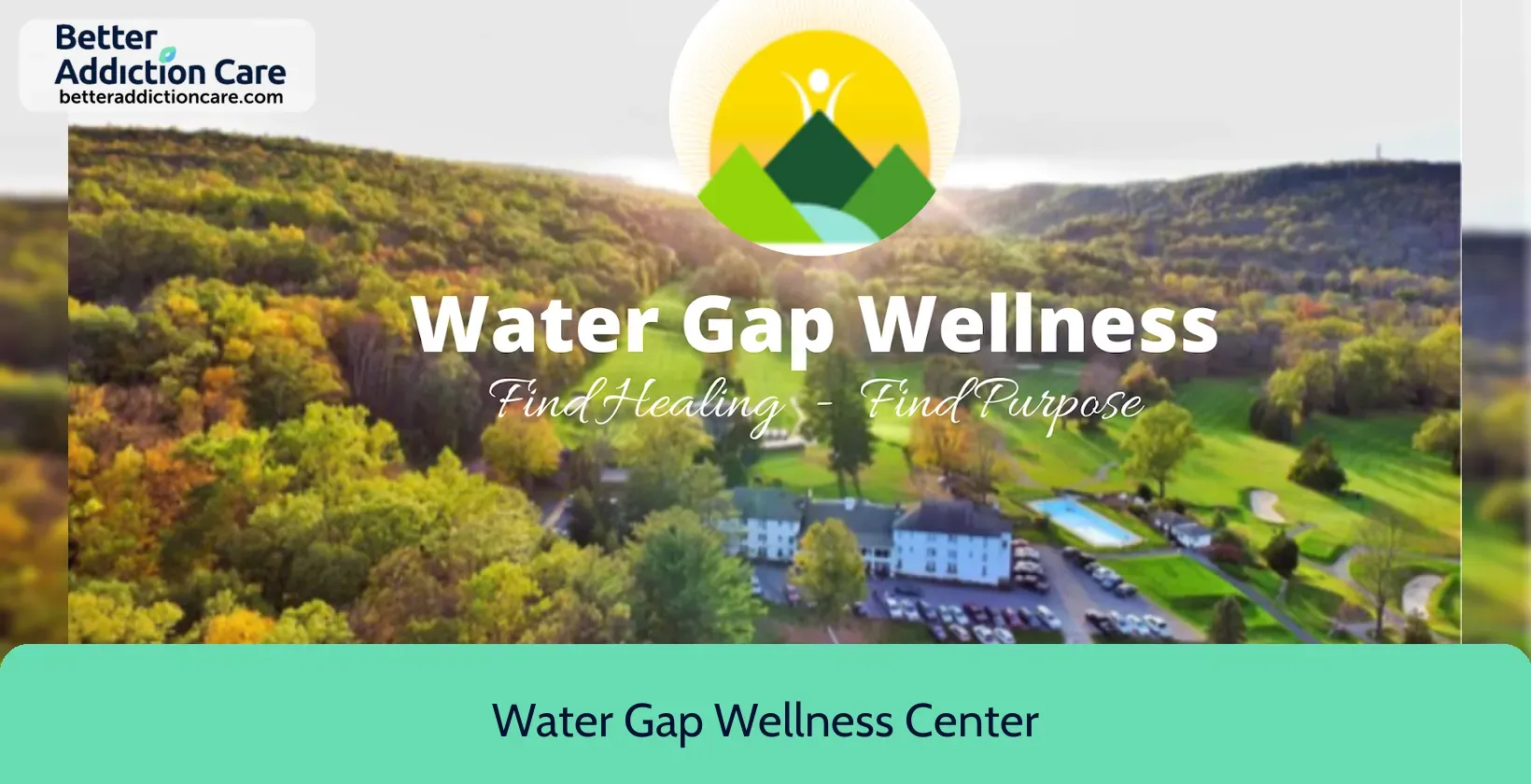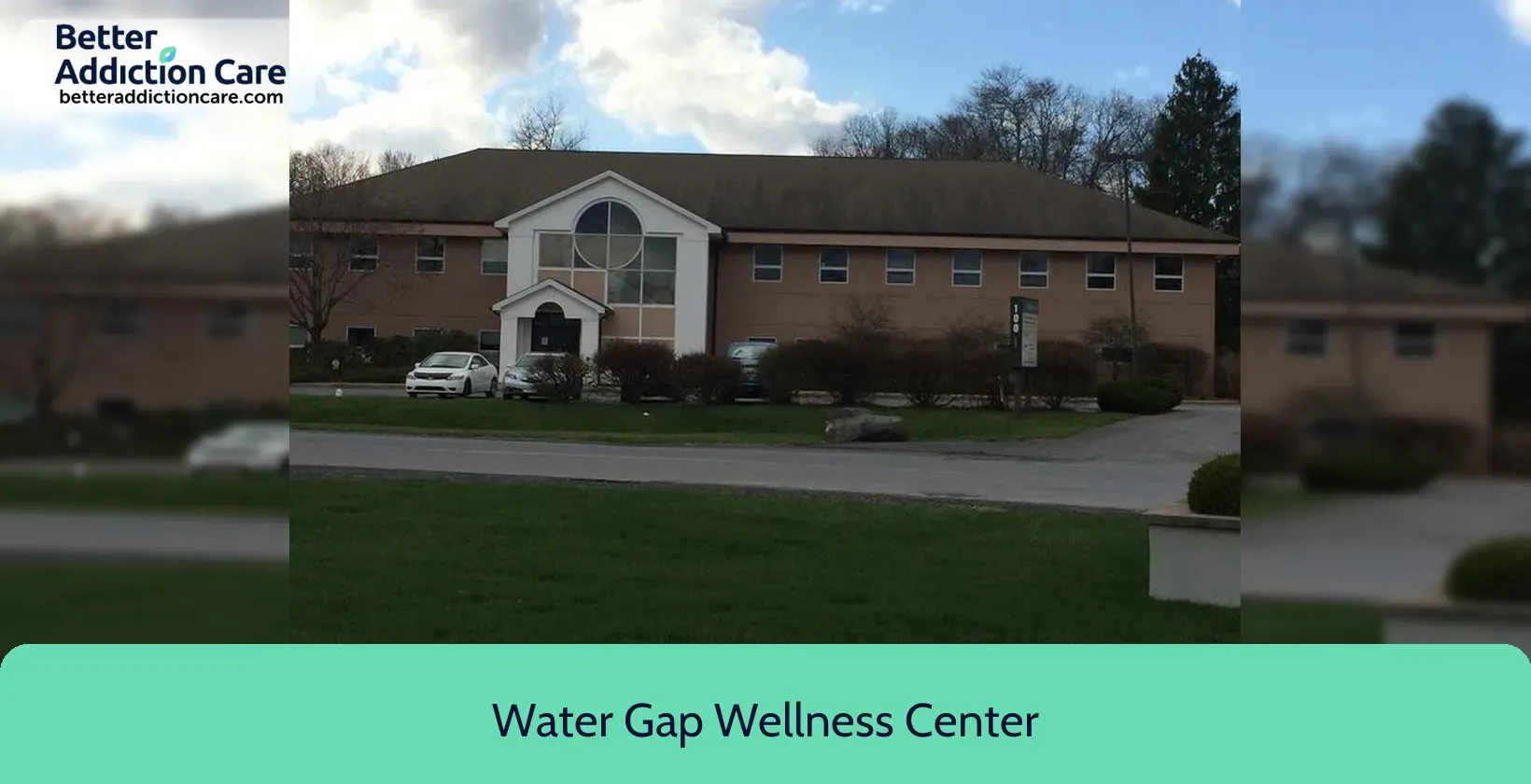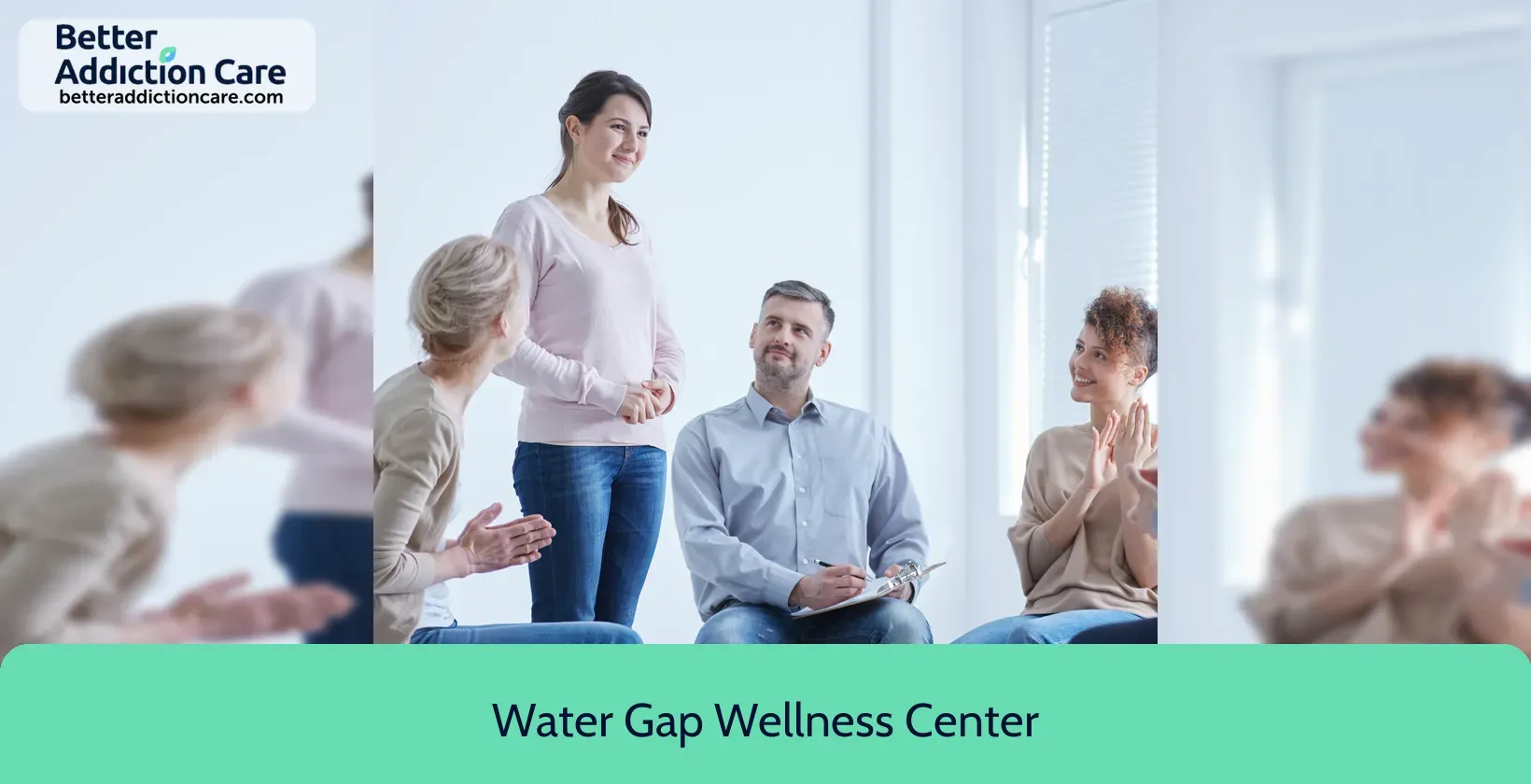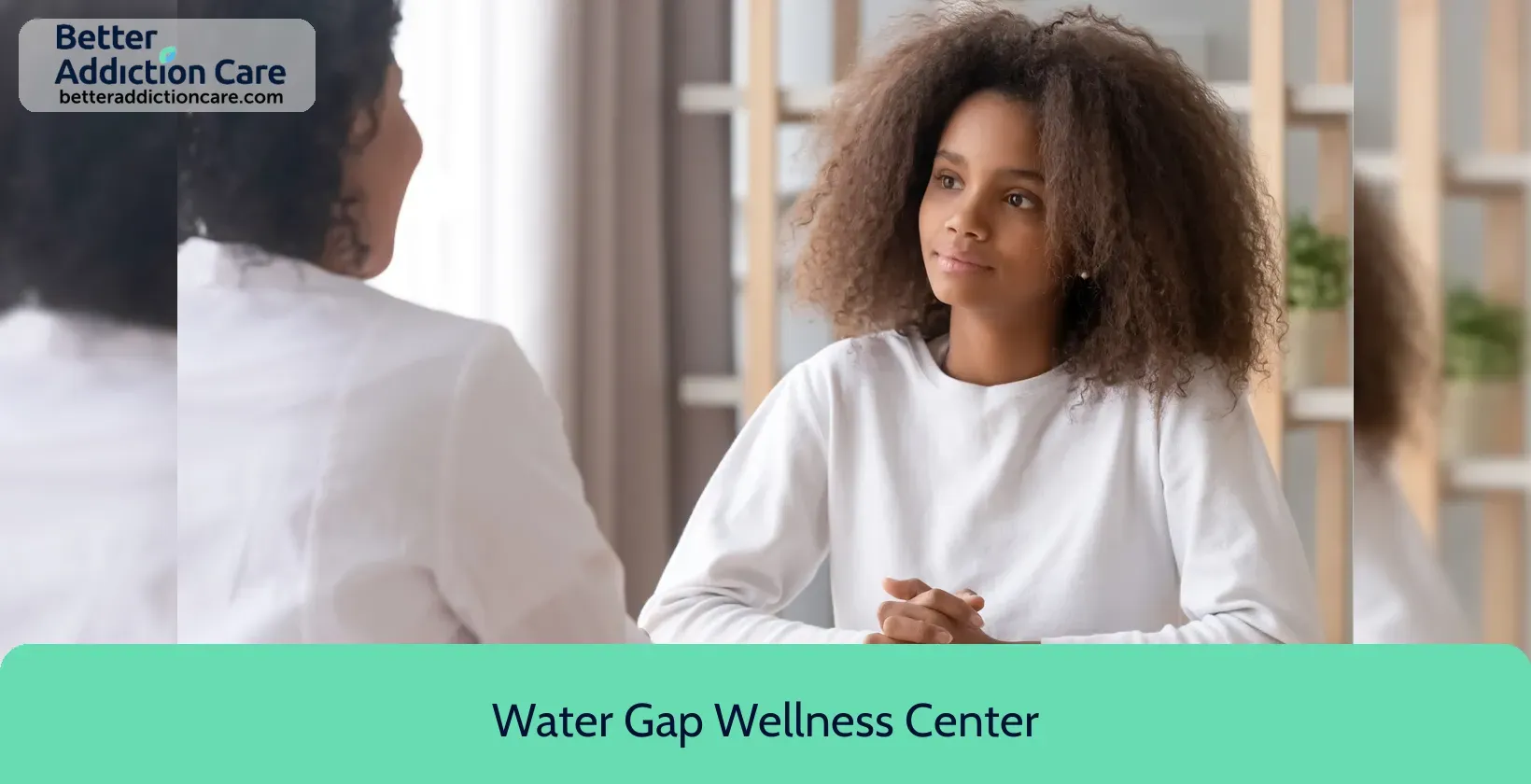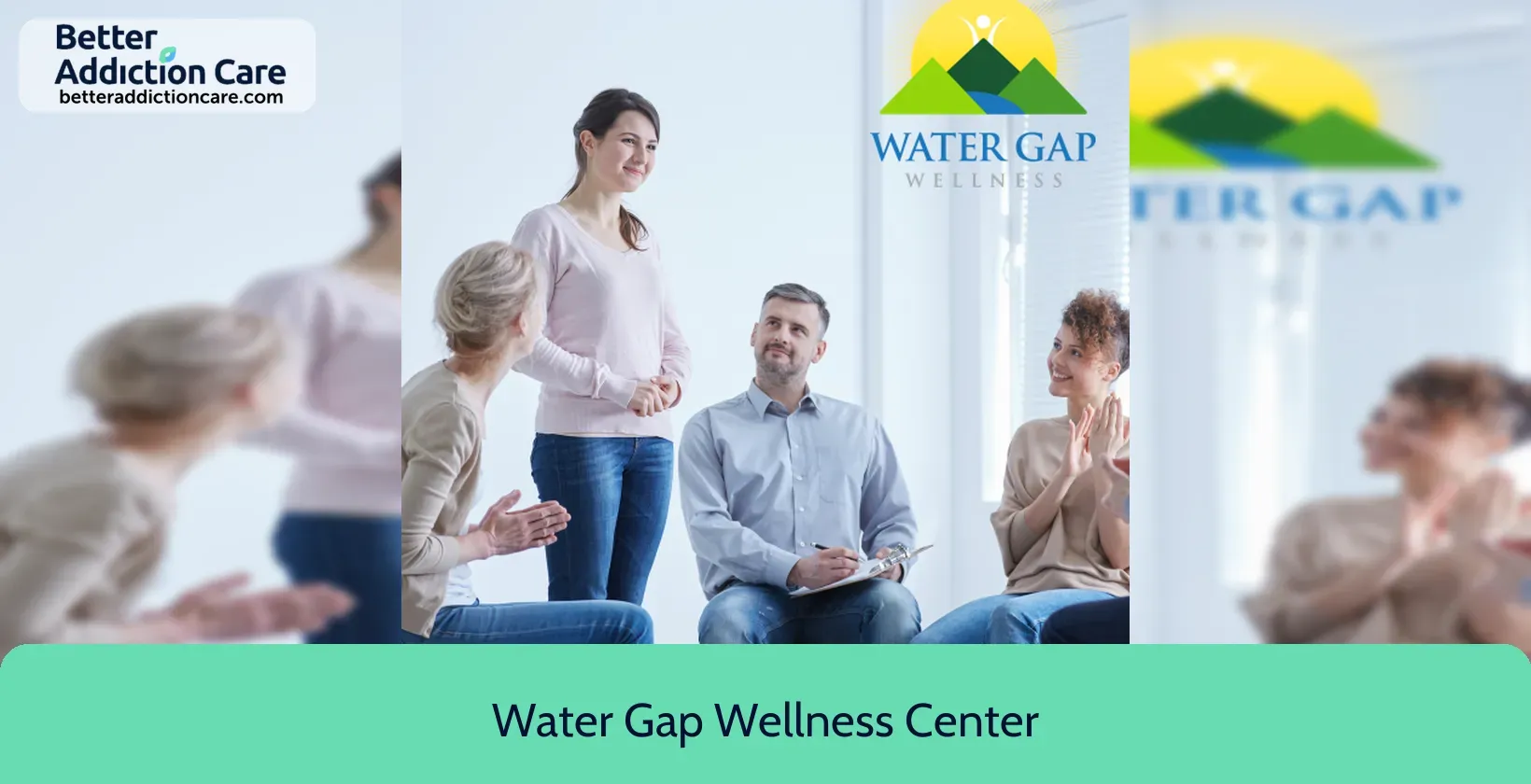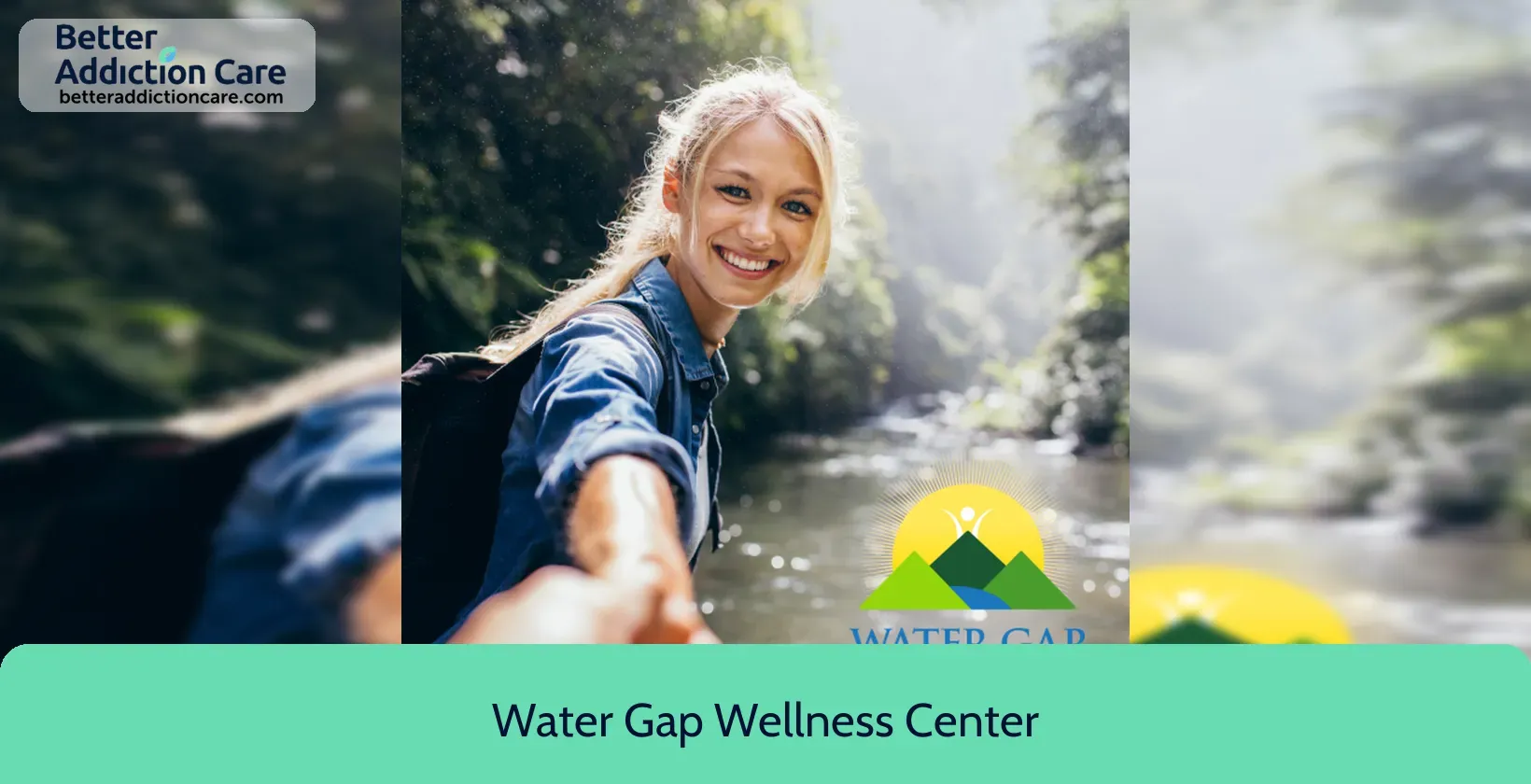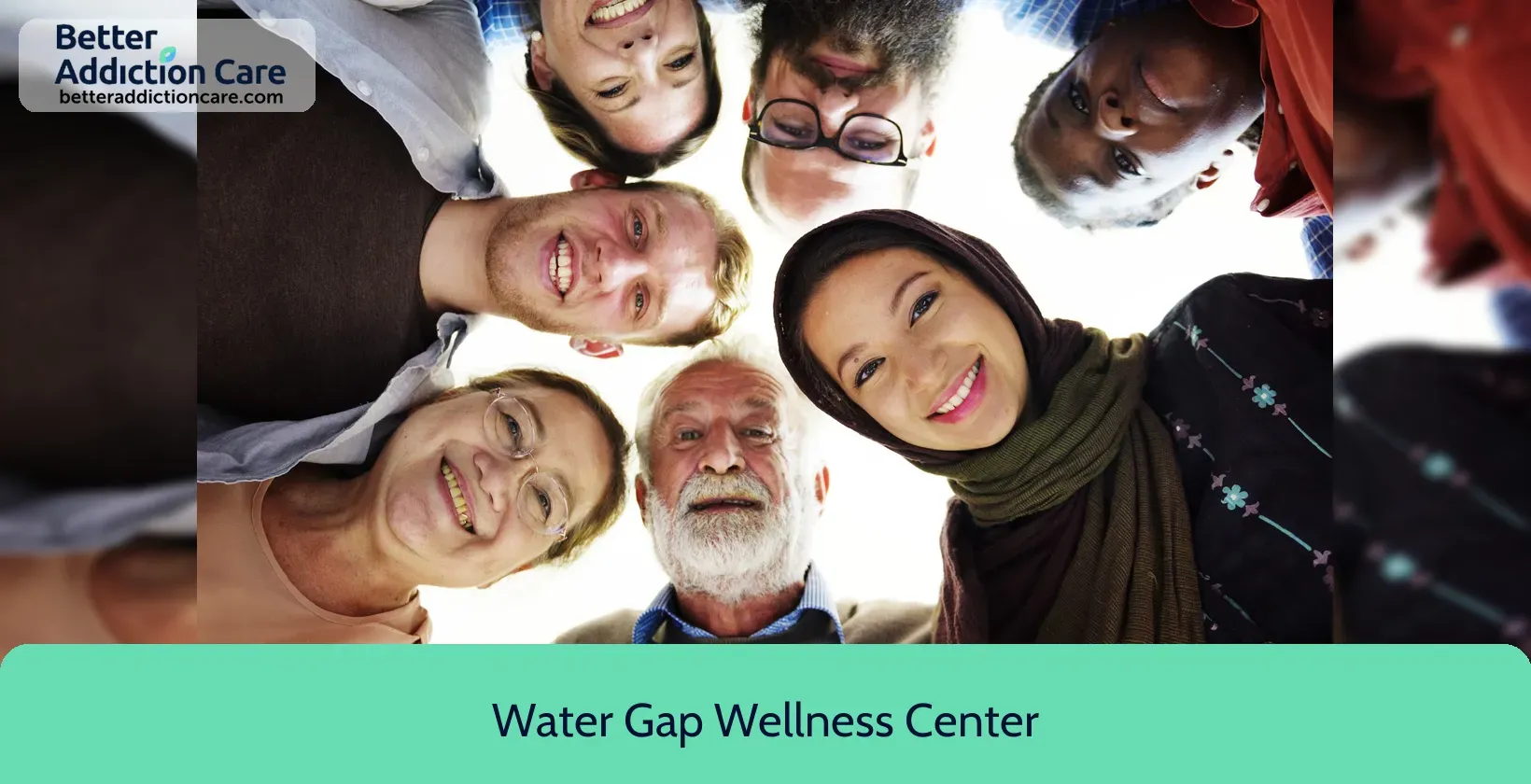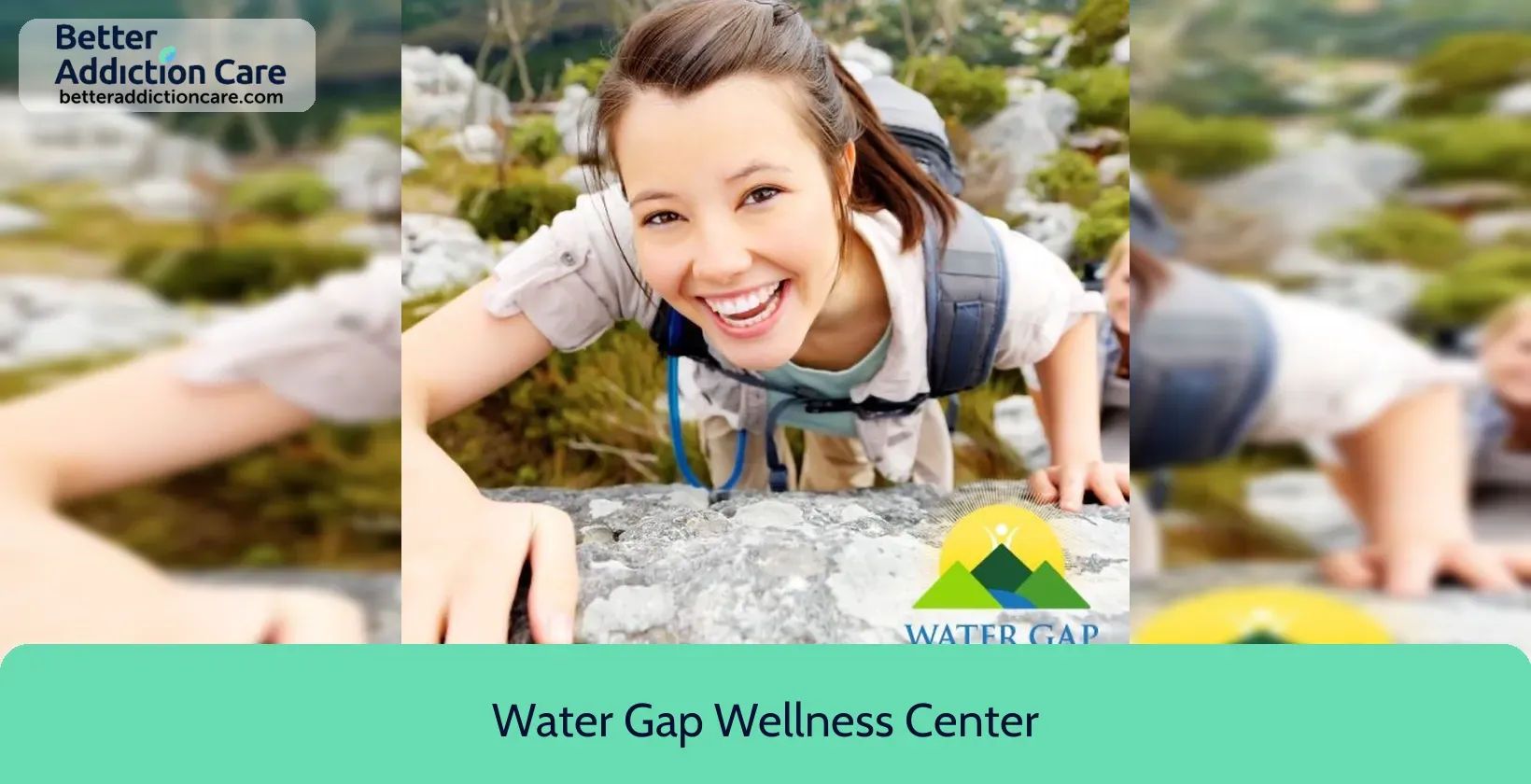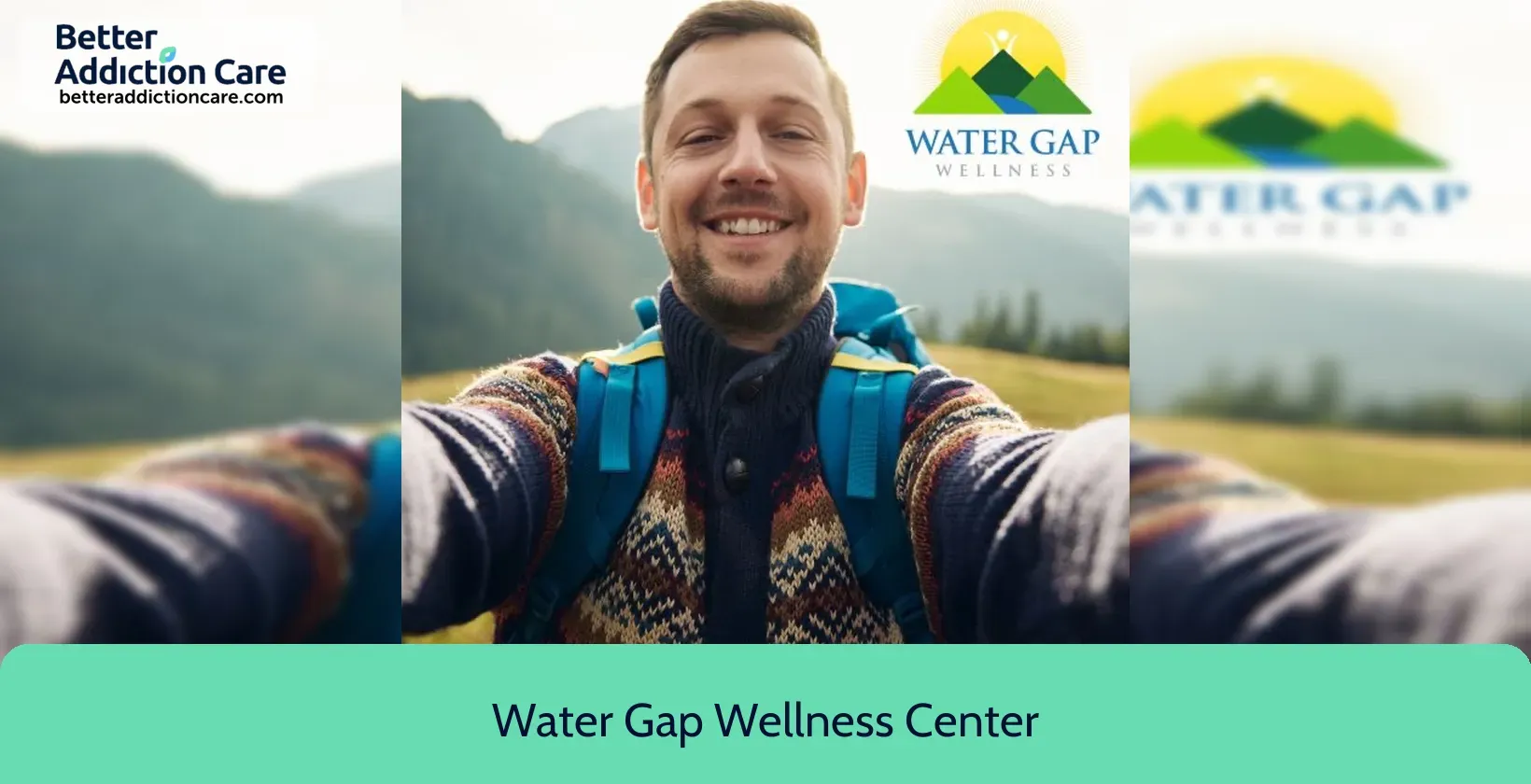Water Gap Wellness Center
Overview
Water Gap Wellness Center is an mental health treatment center that provides outpatient treatment for men between 18 and 65+ years of age. As part of their special programs, Water Gap Wellness Center treats clients with co-occurring mental and substance use disorders, veterans, and members of military families. To help patients achieve sobriety, Water Gap Wellness Center provides intake assessments. Afterward, patients receive couples/family therapy, group counseling, and cognitive behavioral therapy during treatment. Water Gap Wellness Center is located in East Stroudsburg, Pennsylvania, providing treatment for people in Monroe County, accepting cash or self-payment, private health insurance, and federal military insurance (e.g., tricare).
Water Gap Wellness Center at a Glance
Payment Options
- Cash or self-payment
- Private health insurance
- Federal military insurance (e.g., TRICARE)
Assessments
- Comprehensive mental health assessment
- Comprehensive substance use assessment
Age Groups
- Seniors or older adults
- Young adults
- Adults
- Seniors
Ancillary Services
- Assertive community treatment
- Case management service
- Family psychoeducation
- Integrated primary care services
- Suicide prevention services
Highlights About Water Gap Wellness Center
6.65/10
With an overall rating of 6.65/10, this facility has following balanced range of services. Alcohol Rehabilitation: 8.00/10, Drug Rehab and Detox: 6.00/10, Insurance and Payments: 6.00/10, Treatment Options: 6.61/10.-
Alcohol Rehabilitation 8.00
-
Treatment Options 6.61
-
Drug Rehab and Detox 6.00
-
Insurance and Payments 6.00
Treatment At Water Gap Wellness Center
Treatment Conditions
- Alcoholism
- Mental health treatment
- Substance use treatment
- Co-occurring Disorders
Care Levels
- Partial Hospitalization Program
- Outpatient
Treatment Modalities
- Couples/family therapy
- Group counseling
- Cognitive behavioral therapy
- Dialectical behavior therapy
- Integrated Mental and Substance Use Disorder treatment
Ancillary Services
Additional Services
- Pharmacotherapies administered during treatment
- Metabolic syndrome monitoring
Special Programs
- Clients with co-occurring mental and substance use disorders
- Veterans
- Members of military families
- Criminal justice (other than DUI/DWI)/Forensic clients
- Clients with HIV or AIDS
Common Questions About Water Gap Wellness Center
Contact Information
Read our Most Recent Article About Drug Addiction
DISCLAIMER: The facility name, logo and brand are the property and registered trademarks of Water Gap Wellness Center, and are being used for identification and informational purposes only. Use of these names, logos and brands shall not imply endorsement. BetterAddictionCare.com is not affiliated with or sponsored by Water Gap Wellness Center.
